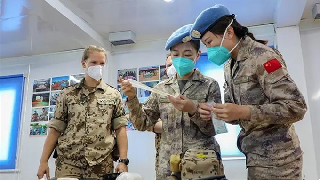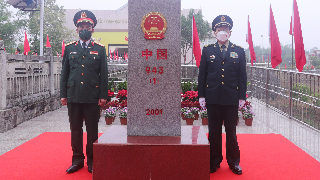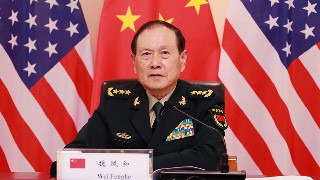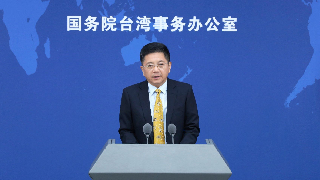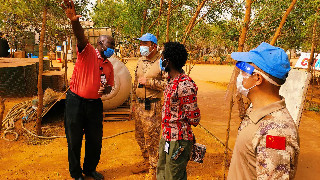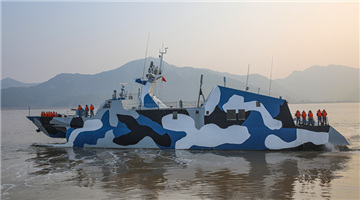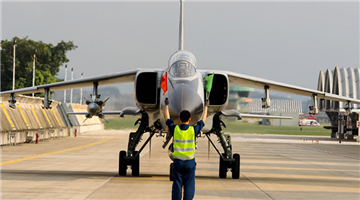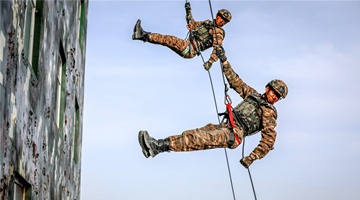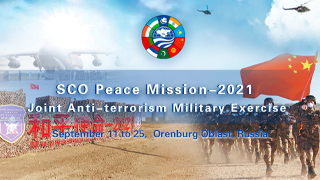By Lin Yuan
In recent years, the US has been pushing the military cooperation with ROK and Japan on the ground of the Korean nuclear issue and regional security threats, and trying to form a trilateral military alliance with them. With America's egging, the three countries have had frequent diplomatic and military interactions recently revolving around regional hotspot issues, but they still have major divergences on issues concerning their core interests, indicating how fragile the alliance is.
Frequent trilateral interactions
The US, Japan and ROK have had a series of diplomatic and military activities recently.
Intense diplomatic consultations
On March 10, the very day he was elected president, Yoon Seok-youl had a phone call with US President Joe Biden, and another one with Japanese Prime Minister Fumio Kishida the next day, which the Yonhap News Agency said showed the president-elect's commitment to rebuilding the US-ROK alliance and improving the relations with Japan.
Frequent joint exercises and training
It is reported that the aircraft carrier USS Abraham Lincoln of the US Navy entered eastern waters off the Korean Peninsula on April 11, four years and five months after a US aircraft carrier made the previous entry. The US Navy Seventh Fleet later released a statement that the Abraham Lincoln Carrier Strike Group was having joint training with the Japanese Maritime Self-Defense Force that was aimed to intensify conventional deterrence and reassure regional allies and partners. Besides, Yonhap News Agency reported that the US and ROK launched a nine-day springtime computer-simulated command post exercise on April 18.
Remaining conflicts and divergences
The internal conflicts and divergences within the trilateral alliance cannot even hide when the three countries try to put up a cooperative posture.
Transfer of ROK troops' OPCON
The transfer of wartime Operational Control Authority (OPCON) from the US side is postponed, again. Without OPCON, ROK troops have to follow America's lead regarding combat plans and military exercises. Moon Jae-in, ever since he took office in 2017, has repeatedly expressed his wish to take back the command within his term, but the US was dragging its feet.
Last year, the US and ROK agreed to hold the Full Operational Capability (FOC) test in 2022 as a preparation for the OPCON transfer, yet no such subjects were included in their springtime joint commanding exercise. ROK media, therefore, reckoned that Moon Jae-in's wish went unanswered.
Growing vigilance among allies
Washington and Tokyo recently proposed to hold a joint military exercise, together with ROK, in waters off the Korean Peninsula. In response to that, Yoon Seok-youl's spokesperson Kim Eun-hye said the government may seek to strengthen the security cooperation with the US and Japan, but rejects the idea of the trilateral military exercise, adding that the Yoon Seok-youl administration will consider effective and practical ways to achieve security cooperation among the three countries.
A Japanese website commented that Washington should fully consider the dynamic changes and complexity in the Indo-Pacific region when pushing its "Indo-Pacific strategy", and that its strategic goals will be hard to achieve given the different interest demands of its allies and partners.
ROK media also pointed out that although Yoon Seok-youl wants to improve the relations with Japan, how his wish will play out is uncertain yet judging by the two countries’ repeated tension in the past over historical and territorial issues.
Since Biden came into power, he worked hard to cement the US-Japan-ROK "iron triangle" and to build a sturdy forward position of deterrence in Northeast Asia, but the piled-up problems within the triangle are disrupting his plan.
